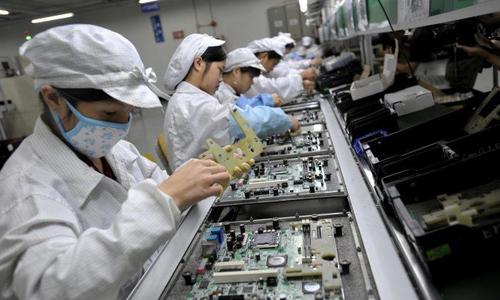China Labor Reforms Nix "996 Work Culture" As Some Complain About Crackdown
China stepped up its labor reform last month by banning the so-called "996 work culture"- where people work 9 am to 9 pm, six days a week, according to BBC News.
China's top court and labor ministry released a joint statement warning companies that exhausting work schedules are now illegal. The court detailed ten court decisions related to labor disputes, mostly involving workers being forced to work overtime.
"Legally, workers have the right to corresponding compensation and rest times or holidays. Complying with national working hours is the obligation of employers. Further guidelines will be developed to resolve future labor disputes," the joint statement said.
The new labor laws for a standard workday is China's new labor laws for a standard workday is eight hours of work per day and a maximum of 44 hours each week. Any time over and employers will be required to pay over time - with the monthly limit of 36 hours.
The ten cases heard by the court were mainly workers complaining about employers denied them overtime pay and payment for injuries.
One of the cases heard by the court involved an employee of a company who worked 300 hours each month for a year. He was only granted three days per month to rest or about 36 days out of the year. The court said his employer violated his right to rest.
The court acknowledged 996 work culture drives Chinese companies to slash labor costs and maximize profits, though it said excessive overtime is having psychological effects on workers that are damaging their physical and mental health, family life, and ability to have a social life.
Reuters notes that employees at TikTok-owner ByteDance saw their August paychecks reduced by 17% after the company cut the 996 programs.
"My workload hasn't actually changed," a product manager at ByteDance said, who spoke on condition of anonymity for fear of retribution by his employer. "But unfortunately, the salary is lower."
Another reform was government-backed unions created by ride-hailing giant Didi Global and e-commerce powerhouse JD.com in recent weeks, a groundbreaking achievement for China, to say the least.
It remains to be seen if the 996 programs will be slashed for the tens of thousands of Muslim Uyghur minority from the western Xinjiang autonomous region of the country who have been forced into slave labor in factories that are intertwined in top global brands such as Apple, BMW, Gap, Huawei, Nike, Samsung, Sony, and Volkswagen.
https://ift.tt/3BH5qq0
from ZeroHedge News https://ift.tt/3BH5qq0
via IFTTT


0 comments
Post a Comment